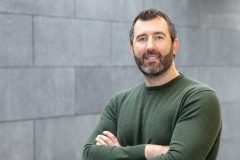Obesity limits the training of our bodies’ natural killers
Toggle
Natural Killer (NK) cells are a part of our body’s immune system, and are critically important for protection against cancer and viral infections, including SARS-CoV-2, writes Dr Andy Hogan, Department of Biology, Maynooth University
Over the past decade it has been recognised that NK cells can be trained to be more effective killers, and this has resulted in very positive outcomes in certain human cancers, highlighting an exciting new immunotherapy.
However, previously an international team of scientists from Harvard University, Trinity College Dublin and Maynooth University have reported defective NK cells in children and adults living with obesity - (Tobin et al, JCI insight 2017 & Michelet et al, Nature Immunology 2018).
These studies provided evidence that defects in NK cells could potentially explain why people with obesity are disproportionally impacted by cancer and viral infections.
The studies pinpointed, for the first time, the defects in NK cell activity to failures in the cells metabolism, essentially leaving the cell without energy to function. This led to two further questions, what are the metabolic requirements for NK cell training, and can NK cells from people with obesity be trained?
In 2019, in collaboration with Prof Donal O’Shea, I secured funding from the Health Research Board to answer these questions. In a new study (Kedia-Metha et al, Blood Advances 2021), researchers from Maynooth University and Trinity College Dublin, have unravelled the metabolic requirements for NK cell training, and demonstrate that due to defective metabolism, NK cells from people with obesity cannot be trained to be more efficient killers.
The research found that during the first 18 hours of training, NK cells need to ramp up their metabolism, with elevated rates of glycolysis and oxidative phosphorylation required. Inhibition of either of these metabolic pathways resulted failed training, with the cell being a less effective killer.
Having previous identified defects in both glycolysis and oxidative phosphorylation in NK cells from people with obesity, the researchers now show that this means NK cells from people with obesity cannot be trained. These findings may have implications for immunotherapy in this particularly vulnerable population, and highlight the importance of immune fitness for successful immunotherapy.
With this new information, our HRB-funded team have now turned their focus to restoring NK cell activity in people with obesity.
(Front photo credit: NIAID - Human Natural Killer Cell, CC BY 2.0, https://commons.wikimedia.org/w/index.php?curid=62609558)
